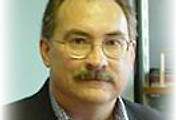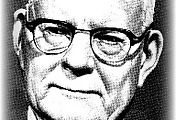반응형
제 모교인 KDI School of Public Policy and Management (KDI 국제정책대학원) 에서 얼마전 나온 제 책에 대한 인터뷰를 하고 싶다고 연락이 와서 간단하게 E-mail로 교지 편집자인 Zhonglei(Frank) Liu 刘忠磊 라는 중국에서 오신 MBA-Fiance 과정 학생과 나누었던 말 들 입니다.
Date: Feb. 24, 2009
Place: KDI School of Pulic Policy and Management -- University of Illinois at Urbana-Champaign
Interviewee: Jeong-Hwan Choi, MBA (KDI School Alumni, 2004)
Interviewer: Frank (Zhonglei) Liu
Could you please tell your experiences in and after KDI School, like your activities, classes, what do you think about KDI School etc.?
(Jeonghwan) Experiences at KDI school were one of my most valuable one in my life, not only learning managerial skills but also learning from people who were really energetic and self-motivated. I learned many theoretical and empirical things in management from prominent professors at KDI school, and I could upgrade my knowledge, skills, abilities as a future leader for organization or society. Moreover, networking with top-level potentials in Korea and many other countries is another big value for me. However, most important transition of me was I could start setup my own inquiry for Leadership in KDI School. This inquiry drove me to pursue another career track. In sum, KDI school gave me a most important transition opportunity in my life.
Could you introduce your book to us briefly?
(Jeonghwan) My book (Kyogam Leadership-Sharing Sense: Leadership Principle for 4th wave) is started with some critical questions that “Why we don’t have true leaders? Who kills leaders.” These questions were arisen when I studied in KDI School, and I addressed them with theoretical and practical insights. Then, I proposed a leadership principle that “Kyogam-Sharing Sense.” Many leadership scholars and practitioners have proposed many leadership principles and I have tried to integrate them, and conceptualize them as a “Kyogam-Sharing sense.”
Sharing sense means:
Sharing emotion,
Sharing affection,
Sharing sympathy,
Sharing touch,
Sharing memory,
Sharing gratitude,
Sharing inspiration,
Sharing admiration,
Sharing thanks.
In addition, the sharing sense is communicating with human but with heaven and earth. My rationale is future leaders should consider and engage themselves to lead people to right direction to meet and answer inquiries from heaven and earth by positioning them as agents of people, heaven and earth. This concept is come from the Korean philosophy, and I hope to believe this is one of explorative efforts to develop a new leadership principles based on different cultural and philosophical background from contemporary leadership ones.
What are the main motivations you wrote the book?
(Jeonghwan) Before coming to KDI School, I worked a MNC manufacturing company as R&D Engineer. At the workplace, I found out that leadership is the most important factor in management. But there were little understandings of leadership or very superficial practices. So, I came to the KDI school to address the problem of “What should leaders do to lead people?” In parallel with taking managerial courses at KDI school, I started to write down my ideas and questions in my blog. These blog materials became bases of my book.
You emphasize “sharing” concept in your book, could you give some suggestions to KDI School students from this point? (Or What are the KDI School students doing well, and what should we improve?)
(Jeonghwan) On the first session at ‘strategic leadership’ by Prof. Seung-Joo Lee, he said ‘leader are doing right things but managers are doing things right’. In this sense, future leaders should answer ‘what are right things to do.’
As I already mentioned, sharing sense is highly based on “intangible things such as emotion, sympathy, gratitude etc.” In order to have this ability, I strongly recommend KDI school members to have “critical reflection time and try to answer ‘who am I’ ”
Sensing the inner voice through critical reflection can transform people to leaders. I can sense that all KDI school students have strong potential to be great leaders, but we have to make a lot of effort to sense real needs and questions from people, heaven, and the earth.
'Meditation on Korean Leadership > 2.Leader to Leader' 카테고리의 다른 글
| 리더십 연구/공부를 위한 추천 서적들 (Recommendable Leadership Books) (0) | 2009.08.05 |
|---|---|
| 글로벌 리더의 경쟁력 (Lecture from a Guru, Dr. Jeff Flesher) (2) | 2009.04.01 |
| Zombie Employee...!! (0) | 2009.02.02 |
| 데밍이 말한 경영에서의 7가지 치명적 "독" (0) | 2008.11.09 |
| 간디의 일곱가지 치명적인 죄..!! (0) | 2008.11.09 |




댓글